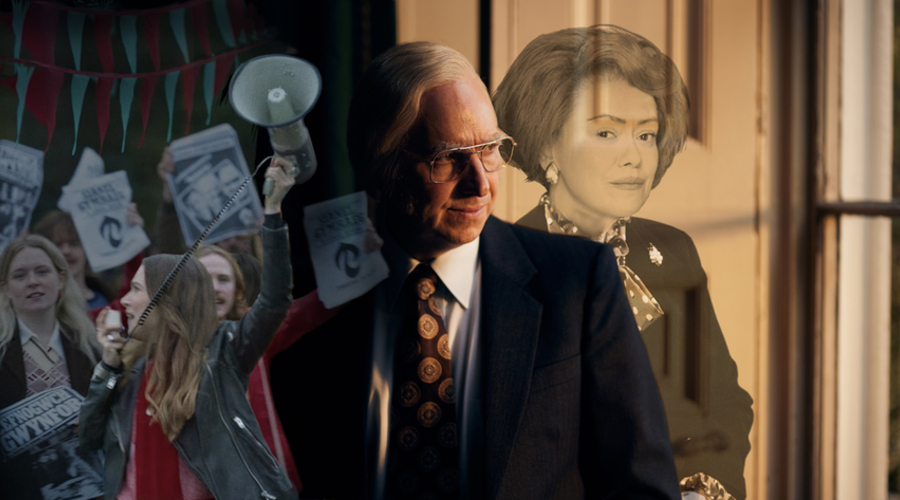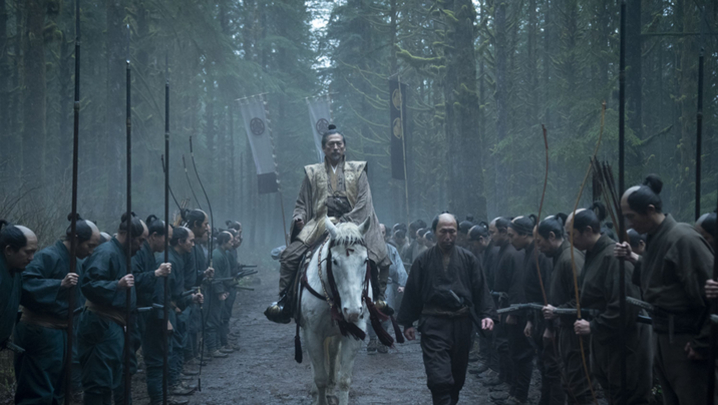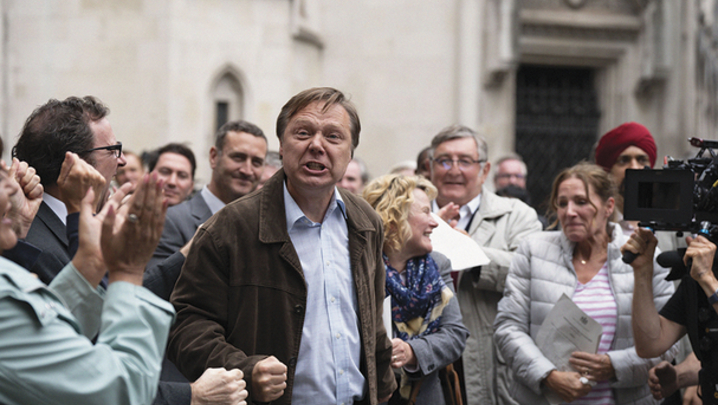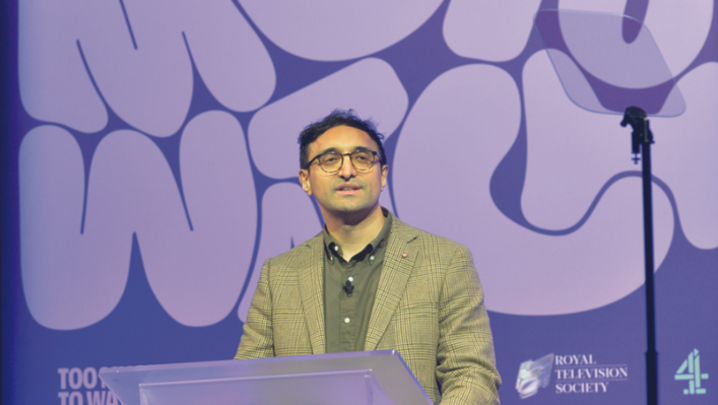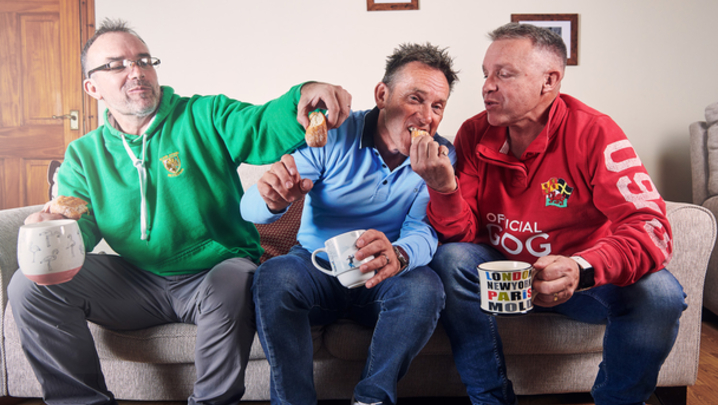Matthew Bell talks to the makers of Y Sŵn (The Noise), S4C’s Welsh-language dramatisation of its painful gestation.
Welsh language channel S4C turned 40 in November but, as a new film commissioned to celebrate its birthday reminds us, it almost didn’t draw its first breath.
Y Sŵn (The Noise) tells the story of how the Conservative Government reneged on its 1979 manifesto pledge to introduce a Welsh-only channel and then – no spoiler alert needed – caved in.
“We wanted to do something special to commemorate our 40th birthday and decided to tell how S4C came together,” explains Gwenllian Gravelle, S4C head of scripted. “But we didn’t want to make something that was looking backwards… it’s about the past, but also looking forward to the future. We wanted to make something with a contemporary spin on a really important story for Wales.”
Director Lee Haven Jones and writer/producer Roger Williams, armed with their own production company, Joio, have worked together for many years – notably on S4C crime drama Bang and, most recently, the award-winning Welsh-language horror film The Feast.
The latter is proof – as Squid Game demonstrates on television – that non-English-language films can make their mark worldwide.
WiIliams reckons that, over the past 10 years, audience resistance to subtitles has weakened. A decade ago, no one would have believed that the Korean-language series Squid Game “would have millions and millions of people watching it around the world”.
“Cultural specificity”, he adds, is “incredibly important. We need to be brave… and not try to imitate what other people have done. There is an appetite for distinctive voices, telling stories that haven’t been told before.”
While taking The Feast around international film festivals, says Haven Jones, “it became apparent to me that, if we are to succeed in the Welsh language, then we need to make [content] that feels different to Anglo-American stuff. Otherwise, we’re just replicating stuff, but on smaller budgets.
“Rather than doing what British TV does well, which is using [Ken] Loachian social realism, let’s make something else that feels heightened and different…. That was the key to making Y Sŵn.”
The story of the difficult birth of S4C, he says, is “still fascinating today. It was gifted to Wales by a Tory Government and here we are, 40 years later, with a Tory Government that could quite easily decide to bring it to an end. If we don’t want that to happen, I think we have to start making content that is unique and distinctive, and not generic.”
Williams rigorously researched the programme, talking to many of the key people involved at the time, but the truth was slippery. Haven Jones recalls a conversation in which Williams told him: “Nobody can agree on what actually happened.”
This lack of clarity was liberating for a creative film-maker. Y Sŵn begins with a quote from the Welsh poet R Williams Parry, which translates as, “Nearer the truth than the historian is the dramatist with all his fictions,” and carries on from there. As the director cheerfully admits: “There is no such thing as objective truth, so let’s make it up. It’s my job as a director of fiction.”
The film is Williams and Haven Jones’s version of the story, but it is essentially accurate. The duo developed a structure to tell what the director says is “quite a complex narrative”, but in an “entertaining, playful” way.
Three storylines are intertwined: the resistance of gentle but passionate Plaid Cymru leader Gwynfor Evans (played by Rhodri Evan), who plans to go on hunger strike to force the Government’s hand; the machinations of the Tory cabinet, principally Home Secretary Willie Whitelaw (Mark Lewis Jones), Margaret Thatcher (Sian Reese-Williams) and Welsh Secretary Nicholas Edwards (Rhodri Meilir); and an imagined character, young, black Cardiff civil servant Ceri Samuel (Lily Beau Conway). She undergoes a political and cultural awakening and offers a promise of a future, more diverse Wales.
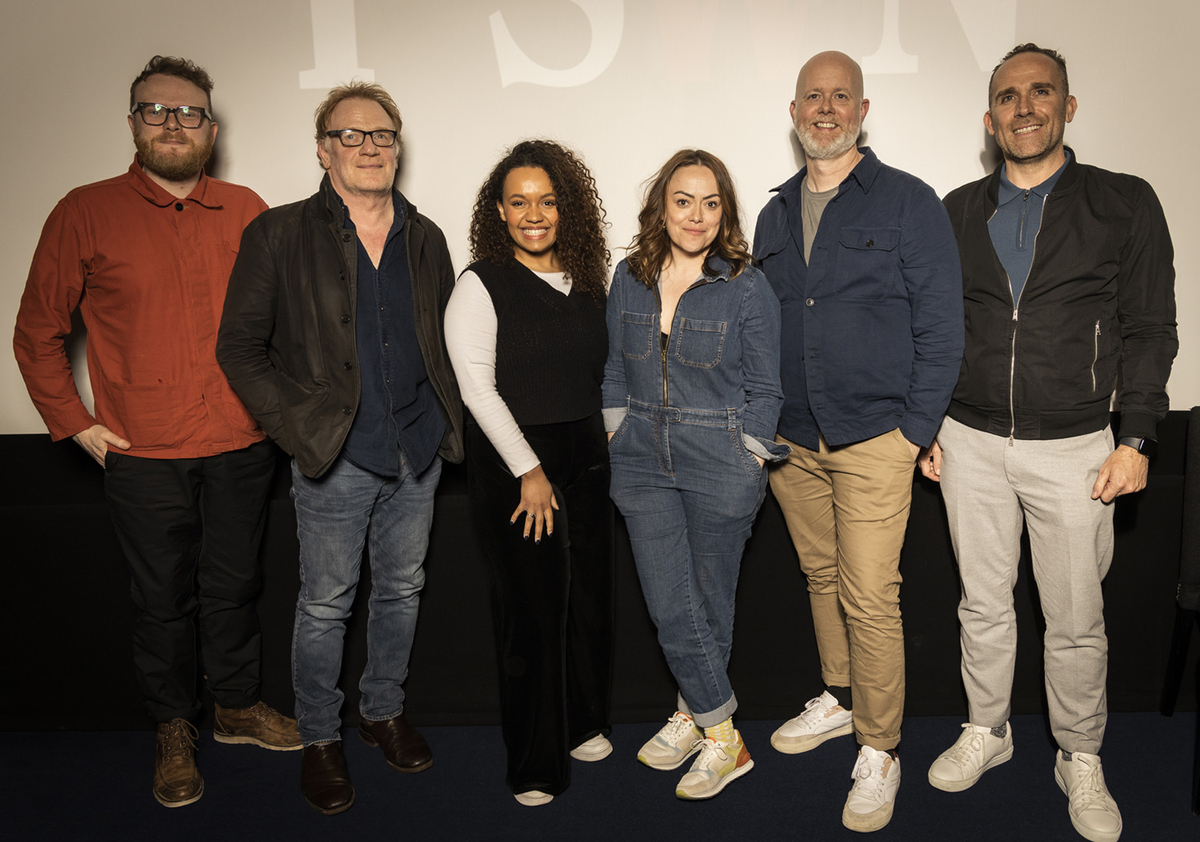
The Westminster scenes, filmed in Swansea Guildhall, are shot in black and white to suggest “an imperialistic, traditional, slightly Victorian feel. Wales, by contrast, is far more colourful and more intimate,” explains Haven Jones, who was born in South Wales and whose colours are firmly nailed to the Welsh mast.
Reese-Williams admits that the role of Thatcher was one “I never really expected to be doing, especially as a Welsh actor”, but that it was “a good laugh doing it”.
“Lee and I had a conversation before I started filming about the tone and how he wasn’t really interested in a true representation of the person; it was more about the spirit and the essence of the person. He said to me, ‘The reason I want you to do it is we need somebody with balls.’ I thought, sure, great, and I hope that’s where the similarity ends.’”
She continues: “Having Welsh actors playing those [Westminster] parts… instantly [tells the audience] that we’re telling the story very firmly from the perspective of Wales.”
The film has huge fun pricking the pomposity of the English establishment. A piece of archive, discovered by accident, is inserted when news breaks of the Government’s U-turn, and shows an English newsreader announcing, with no irony, that, with a new channel for all Celtic programming, Welsh “will stop popping up to the dissatisfaction of everyone on existing TV channels”.
Y Sŵn was shot across South Wales. “One of our main challenges,” says Williams, ruefully, “was finding locations that could pass as 1979. It’s amazing – there’s something about local authorities in Wales – where a building is more than 30 years old, they pull it down and put a leisure centre there instead.”
The soundtrack features a host of Welsh legends, from 1970s power pop band Y Trwynau Coch, through 1990s Cool Cymru stars Catatonia to current Welsh-language indie rock group Adwaith.
Y Sŵn had a two-week run in cinemas in March in Wales and beyond, a premiere on S4C and is now on BBC iPlayer. “The reception has been fantastic. The people who were involved at the time are really pleased with the way it’s been portrayed and… [younger viewers] can’t believe the passion of the people who tried to start this channel,” says S4C’s Gravelle.
Welsh-language television is arguably enjoying its golden age, and Gravelle says that S4C is at its forefront: “We’re small but we’re nimble and take risks; we’ve just sold our first drama to Netflix, Dal y Mellt (Rough Cut), and our co-production with Channel 4, Y Golau (The Light in the Hall), was the most watched drama on Channel 4 in 2022.
“The last couple of years have been great for us but we’re looking forward now to the next 40 years.”
Lewis Jones, who enjoys a prolific TV career, in and outside Wales, is optimistic that the Welsh renaissance can continue: “I was watching the Irish film The Banshees of Inisherin the other day and we have so many stories like that to tell, and we have the landscape, the actors and the whole technical side.
“What’s happening in Cardiff now, with all the studios opening and the [new] small independents – it’s just a great time for Wales in TV and film. I can’t see a ceiling.”
Y Sŵn was screened at the Soho Hotel, London on 25 April at an event organised by the RTS and is available on BBC iPlayer.

